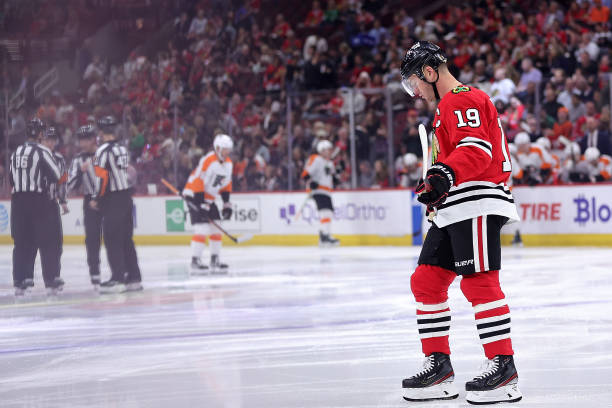In professional hockey, mental health is a crucial element that significantly impacts players’ on-ice performance and team dynamics. As the Chicago Blackhawks complete their transformative offseason, attention is turning to how players are enhancing their mental resilience. With strategic support from coaching staff and new sports psychology resources, the emphasis is on boosting both individual and team performance. By integrating advanced mental performance tools and tailored coaching support, these efforts aim to drive the Blackhawks’ rebuilding process and set the stage for future success.

The impact of mental health on hockey players is evident in various ways, and its importance became particularly clear during the COVID-19 pandemic. The pandemic introduced new challenges for professional athletes, as highlighted by former Blackhawks captain Jonathan Toews, who spoke about his health struggles during this period and the difficult decisions he faced about his future.
Tazer’s” Journey
In October 2021, Toews was placed on the COVID list, adding to the concerns for the team as he had just returned from a previous season missed due to chronic immune response syndrome. Toews shared in a video how his condition affected him, revealing ongoing stress responses that hindered his recovery. Despite the struggles, he received invaluable support from his team and learned more about managing stress.
Although Toews was not always vocal about his challenges, he recognized the importance of prioritizing his health. By March 2023, he expressed his commitment to his well-being, acknowledging that despite his performance standards, his health had to come first. Shortly after, Toews played his final game with the Blackhawks, the team he had been with throughout his NHL career.
Showtime’s” Challenge
Patrick Kane, known as “Showtime,” faced his own mental health challenges during his single season with the New York Rangers, following his trade from the Blackhawks. Kane dealt with the difficulties of recovering from hip resurfacing surgery and expressed his desire to return to top form despite the pain and rehab process. He shared his experiences of hip pain and the impact it had on his performance, emphasizing his determination to continue playing.
A Goaltender’s Advocacy
Robin Lehner, formerly with the Blackhawks, has been open about his mental health struggles, including suicidal thoughts, addiction, and a diagnosis of bipolar disorder, ADHD, PTSD, and trauma. Lehner’s journey included a challenging detox period and initial reluctance to disclose his diagnosis due to stigma. However, his time with the New York Islanders and his subsequent return to the NHL allowed him to advocate for mental health, symbolized by the hashtag #samehere on his helmet.
NHLPA’s Initiative
To address mental health in hockey, the NHLPA has partnered with Opening Minds and Mental Health to provide education and support through the “First Line” program. This initiative aims to raise awareness, reduce stigma, and foster peer support among players.
Training the Mind
Sports psychology, though specialized, is integral to hockey training. It involves developing mental toughness, focus, and resilience through techniques like visualization and effective communication. Programs offered by sports psychologists and coaches are designed to enhance both individual and team performance.
Blackhawks’ Approach to Mental Resilience
Since 2016, the Chicago Blackhawks have worked with O2X Human Performance to enhance various aspects of player development, including mental readiness, recovery, and resilience. Veteran players, like Jason Dickinson, emphasize the importance of mindset and mental strength in their performance and development.
Behavioral sport and performance psychologists, such as Andrew Joy, play a crucial role in supporting players’ mental health. Privacy remains a priority as the Blackhawks continue to focus on mental performance, aiming to unlock their players’ potential and drive future success through dedicated mental health support and performance tools.
